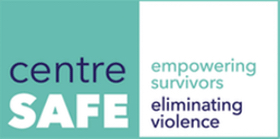Child Sexual Abuse
What is Child Sexual Abuse?
The term “child sexual abuse” means any sexual act between an adult and a minor or between two minors when one exerts power over the other and can include force, coercion, or persuasion. It can also include non-contact acts such as exhibitionism, exposure to pornography, voyeurism and communicating in a sexual manner by phone or Internet.
– Who Are Child Abusers? –
There is no “profile” of a typical child abuser. They come from all classes, racial and religious backgrounds and may be homosexual or heterosexual. Most of those we know about who sexually abuse children are men, but some are women.
Some people who abuse children have adult sexual relationships and are not solely, or even mainly, sexually interested in children. More than a third of those who engage in sexual activity with children are under the age of 18 themselves. In many of these instances, the abusive child may not understand that his or her sexual actions toward another child are harmful.
It’s important to remember that many terms used to describe people who sexually abuse children, like “pedophile” or “sexual predators,” are often misused according to their clinical or legal definition. And, media stereotypes of “child predators” and “monsters” may actually make it more difficult for us to recognize or acknowledge inappropriate behaviors in those people we know.
– Warning Signs –
Physical Signs
- Difficulty walking or sitting
- Bloody, torn, or stained underclothes
- Bleeding, bruises, or swelling in genital area
- Pain, itching, or burning in genital area
- Frequent urinary or yeast infections
- Sexually Transmitted Infections, especially if under 14 years old
- Pregnancy, especially if under 14 years old
Behavioral Signs
- Reports sexual abuse
- Inappropriate sexual knowledge
- Inappropriate sexual behavior
- Nightmares or bed-wetting
- Large weight changes/major changes in appetite
- Suicide attempts or self-harming, especially in adolescents
- Shrinks away or seems threatened by physical contact
- Runs away
- Overly protective and concerned for siblings, assumes a caretaker role
- Post-Traumatic Stress Disorder or Rape Trauma Syndrome symptoms
Common Reactions
- Withdrawal
- Depression
- Sleeping & eating disorders
- Self-mutilation
- Phobias
- Psychosomatic symptoms (stomachaches, headaches)
- School problems (absences, drops in grades)
- Poor hygiene/excessive bathing
- Anxiety
- Guilt
- Regressive behaviors – thumb-sucking, etc.
– How Can I Prevent Child Sexual Abuse? –
The most important thing is to talk openly with your children. Good communication may decrease a child’s vulnerability to sexual abuse and increase the likelihood that the child will tell you if abuse has occurred.
- Teach your children about their bodies, about what abuse is, and, when age-appropriate, about sex. Teach them words that help them discuss sex comfortably with you.
- Model caring for your own body, and teach children how to care for theirs.
- Teach children that it is “against the rules” for adults to act in a sexual way with them and use examples. Teach them what parts of their bodies others should not touch.
- Be sure to mention that the abuser might be an adult friend, family member, or older youth.
- Teach children not to give out their email addresses, home addresses, or phone numbers while using the Internet.
- Start early and talk often. Use everyday opportunities to talk about sexual abuse.
- Be proactive. If a child seems uncomfortable, or resistant to being with a particular adult, ask why.





